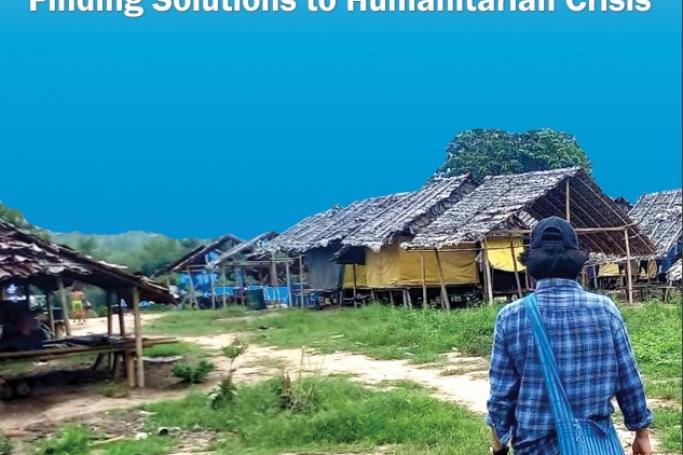Burma News International (BNI) hosted the presentation ceremony of the research paper titled "A Riddle for International Donor Governments Or Finding Solutions to Humanitarian Crisis" online on July 20.
In the event, Soe Myint, Chairperson of BNI's Media Development Committee, expressed concerns over the military's cooperation in humanitarian aid distribution, emphasizing the need for international organizations to address the issue.
“We need to question the effectiveness of the military's cooperation approach. Does the aid reach those who truly need it? The challenges lie in not being able to provide any aid to any individual without obtaining any permission from the military, so international organizations, including the United Nations, should find ways to resolve the issue,” said Soe Myint.
BNI's Managing Director Tin Tin Nyo advocates for urgent collaboration among relevant countries to establish a humanitarian forum amid Myanmar's escalating crisis.
"Since Myanmar's crisis has reached an alarming level, it is necessary for all relevant countries to unite and implement a humanitarian forum as soon as possible,” she said.
She emphasized the necessity for ASEAN and the United Nations to enforce the mandatory delivery of humanitarian aid to the people of Myanmar across borders, with a particular focus on the crucial role played by Thailand and India in fostering effective cooperation.
The research paper examines the challenges faced by international humanitarian aid organizations and UN agencies in delivering aid to the people of Myanmar following the military coup in February 2021, resulting in widespread civil war and mass displacement.
The paper reports that at least 1.5 million civilians have fled their homes since the coup because of the civil war and insecurity.
“During more than two years of the military coup attempt in Myanmar, there are 1.5 million civilians who have fled their homes due to fighting and insecurity. If this is added to already-existing IDPs, the total number of IDPs has reached 1.8 million according to the UNOCHA’s report released on 6 May 2023,” said the paper.
The paper says international humanitarian aid organizations and UN agencies have been unable to find alternative ways to ensure access to humanitarian aid in Myanmar due to the Military Council's restrictions and regional security challenges. As a result, the people in need across the country must rely on people-to-people contributions facilitated by the National Unity Government (NUG), ethnic revolutionary organizations (EROs), and Spring Resistance forces, providing aid through regional networks.
The paper highlights that while the entire country is experiencing challenges in humanitarian aid, Sagaing and Magwe are identified as the areas most in need of assistance.
Additionally, BNI's document proposes that the United Nations should give serious consideration to implementing a no-fly zone, establishing civilian protection zones, and declaring humanitarian corridors at the international level to ensure comprehensive humanitarian assistance reaches the people of Myanmar.












